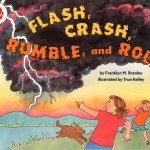
Should you put your money in real estate?
Posted by ludw1086 on May 18, 2013 in Blog | Comments Off on Should you put your money in real estate?The real estate market has picked up this year and in some cities, like San Francisco, there is a shortage of inventory and lots of people making frenzied bids on property. This has led to higher home prices in most cities in 2012 and that trend has continued in 2013 (see Table 1).
Many people are asking two questions. First, should I go buy a house now? Second, if I don’t want to buy a house, should I invest in real estate? The difficulty in answering both questions is that it involves predicting the future, as well as knowing the specific portfolios of each individual investor. If we ignore the specifics of each investor and focus only on predicting the future, it is difficult. Knowing whether real-estate prices will increase in the future or not requires an in-depth analysis of the economy and even then, may be difficult.
From a valuation perspective, one could say, that currently real-estate is not very expensive according to a certain valuation measure. That tells you that the downside of buying real-estate might not be so bad. One could also look to the futures market. The futures market gives us an indication of what the market believes real estate prices will be in the future. Currently (May 16, 2013), the futures market tells us that prices in San Francisco are expected to increase by 23% over the next 2 1/2 years, by 18% in LA, 18% in DC, and 16% in Miami (see Table 2).
That sounds great, but there are three problems with this information. The first is that these real-estate futures contracts are very thinly traded. For example, on May 16, there were only a total of 9 positions in these contracts. Thus, the informational content of these security prices is suspect. The second is that the futures markets aren’t necessarily good predictors of the future. For example, if we look back to July 2, 2012, the prediction was hugely incorrect. On that day, the April 2012 housing prices were known. The futures contracts for February 2013 implied that home prices would rise by 2.89, 3.23, 2.85, and 1.89 percent for San Francisco, Los Angeles, Washington DC and Miami respectively. What actually happened was vastly different, except for Washington DC (see Table 3). For example, the market predicted that San Francisco prices would rise by 2.89% and they rose by 13.82%. An error of enormous magnitude!
The third problem is that even if you believe that markets might have correctly predicted the future, finding an investment vehicle to make money from this is difficult. The reason is that if markets believe that home prices will be higher in the future, the returns of financial instruments have already adjusted to reflect this.
One of the ways that investors can take advantage of a bullish (or bearish) view in real estate is to buy ETFs whose portfolios are based on the behavior of real-estate. Some examples include ROOF, SCHH, RWR, FTY, and a levered real estate ETF, DRN. Some of these ETFs have a relatively short history, but generally speaking, over long periods of time, most of the home price appreciation is already accounted for in the past returns of these ETFs. However, an investor can still make positive returns by purchasing these indices, if they are correct in their assessment that future home prices rise.
The bottom line is that if you believe home prices will continue to rise in the US, you can choose among a variety of ETFs to benefit from such a prediction. But, just remember, most of the expected rise has already been priced into the ETFs.









